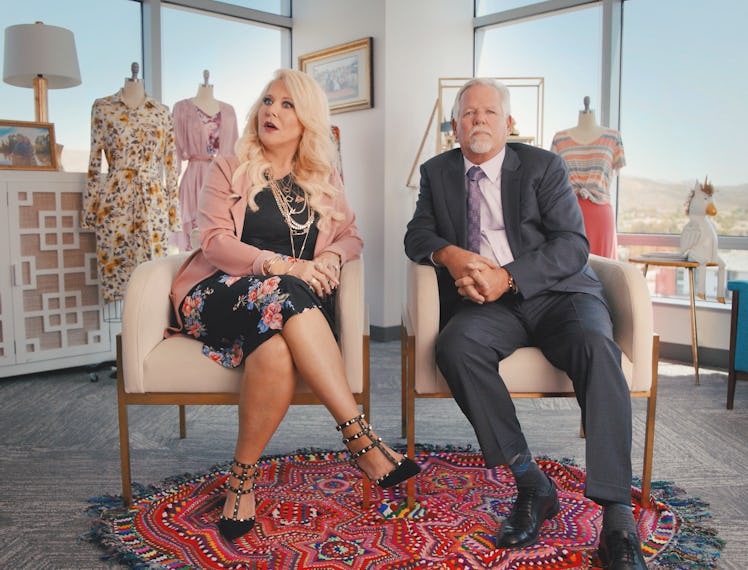LuLaRich is Not Your Average Fashion Documentary
Cult allegations, manipulation, and debt—LuLaRich is not just a documentary about some basic leggings sold by an MLM company.

Welcome to W TV Club, in which W magazine’s editors choose a television show they’d recommend you binge-watch. Our November picks will be a selection of docuseries. This week, culture editor Brooke Marine recommends Amazon Prime’s LuLaRich, which is more than just a documentary about leggings.
This year, it seems like there has been quite an uptick in the number of docuseries produced and distributed by the various streaming platforms that rule my life. Admittedly, I have slept on a few. One of those docuseries is LuLaRich, the four-part investigation into the legging brand LuLaRoe, and how its multilevel marketing business model wreaked havoc on the lives of its salespeople and customers.
LuLaRoe started as a maxi skirt company before dipping into leggings territory. I had never seen any of these skirts or leggings on my feed, though in the documentary—which includes interviews with the company’s founders DeAnne and Mark Stidham as well as former LuLaRoe retailers—it’s explained that the company became quite popular in the 2010s, particularly on Facebook and Instagram.
“We’re not in the clothing business,” co-founder Mark Stidham says, “We’re in the people business.” Sure—that becomes abundantly clear once the series outlines how his company’s MLM model not only scammed the company’s retailers into debt, but also how the founders were accused of starting a cult. Yes, a cult.
Multilevel marketing is technically legal, in case you were wondering. As explained in the documentary, the business model began decades ago with a company called Nutrilite (a food supplement) which paved the way for Amway, a company that made the salesperson into the customer. In the MLM model, a company generates revenue by multiplying the number of sales people, who buy into the company with fees. It doesn’t matter what the product is—it could be beauty products, “wellness” supplements, or even, as demonstrated in the HBO docuseries The Vow, which chronicled the explosion of the NXIVM cult in North America, a “self-help” seminar. In LuLaRich, it’s the leggings. You could sell a concept as part of an MLM, and as long as you have enough levels of loyal salespeople willing to be both customer and recruiter, the people or person at the top will have a stream of revenue.
That’s all explained in the first episode of the four-part series; LuLaRoe seemed to have legitimate origins. But then weird stuff started happening. The legging designs seemed to suggest sexual innuendos. The inventory wasn’t matching up with what was being sold. In the first episode alone—and I am not even joking, yet I truly wish I were—there are sound bites from former LuLaRoe retailers saying, “The whole house smelled like the dead-fart leggings.”
There are also a few strange anecdotes from the LuLa Roe founders, the Stidhams, who are proud members of the Church of Jesus Christ of Latter-day Saints (the Mormon church, in other words). A few of the LulaRoe founders’ 14 children are adopted, and one of those adopted kids is married to one of the founders’ biological daughters, though the parents ham-handedly assure the viewer they have zero blood relation and never grew up in the same house together. And what’s even wilder is that DeAnne Stidham’s maiden name was Startup. It’s stranger than fiction, really.
LuLaRich, directed by Jenner Furst and Julia Willoughby Nason, can at times feel like a parody of an MLM scheme, not a truthful report of actual events. While watching, I had to remind myself a couple of times that this is not a Search Party subplot. It really happened, and as outlined in the docuseries, legal action was later taken against the company. But I won’t spoil the ending for you—this series must be seen to be believed.
This article was originally published on